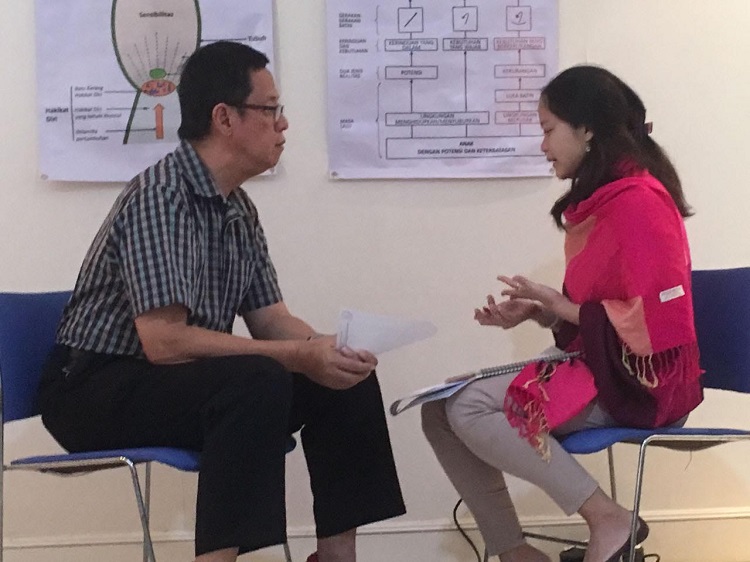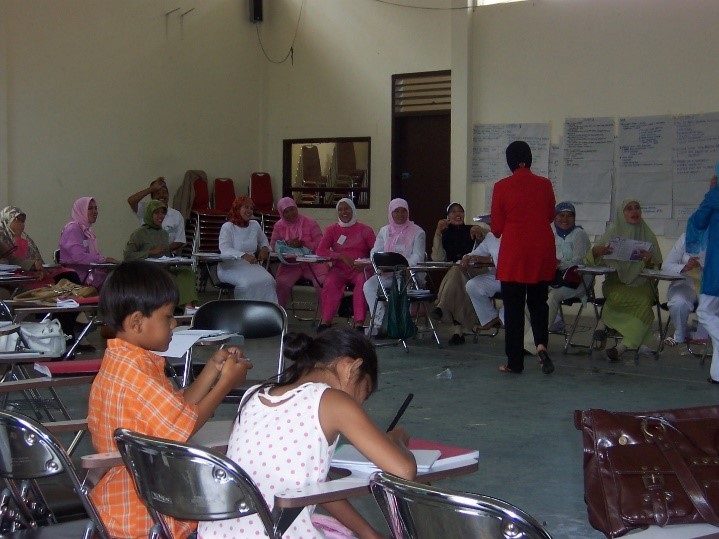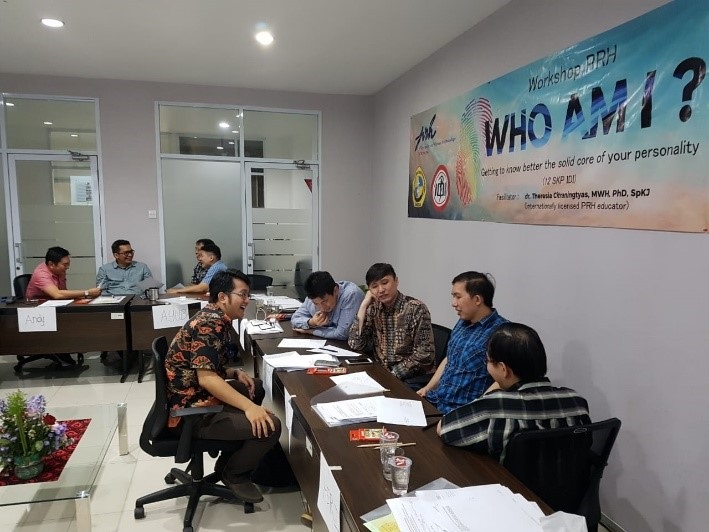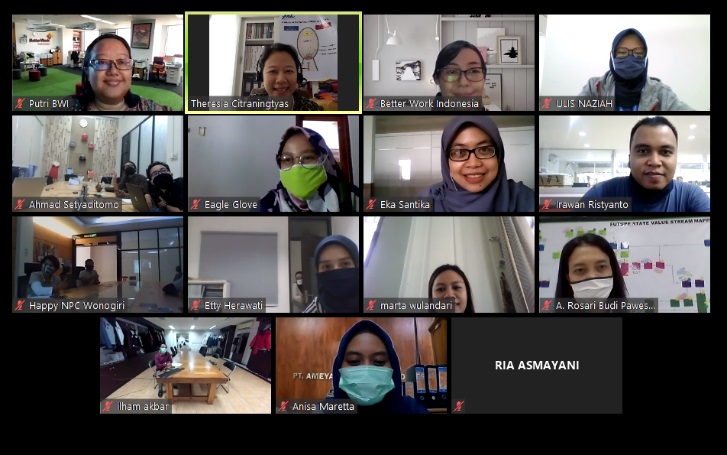Awareness is spreading in Indonesia, but stigma and human rights breaches are still big problems
Versi Bh. Indonesia
Awareness is spreading in Indonesia, but stigma and human rights breaches are still big problems
Theresia Citraningtyas
The notion of ‘mental health’ among the general public in Indonesia is continuously evolving. There has been a general increase in mental health awareness following various public awareness campaigns, developments in society, and some unfortunate incidents. More people are accessing mental health services today than ever before. Having said that, overcoming stigma is still a challenge, and a comprehensive mental health approach is needed as new mental health issues emerge.
Stigma and mental illness
In conversations, people frequently identify the term ‘mental health’ with sufferers of untreated hebephrenic schizophrenia, who are often neglected and forage the streets unclothed. Some of them, along with other people found without identity cards, are placed in social services operated institutions known as panti. Here, their heads are shaved to reduce lice infestation, and they sleep in rows on floor mats while waiting for meals and health visits, or the chance to engage in arts and crafts, singing, exercises and prayer times.
Worse yet, due to a lack of understanding and access to resources, many families have kept people with severe mental disorders chained, shackled, or locked up – a type of physical restraint and confinement known as pasung. People were even subjected to various forms of inhumane treatment from midnight cold showers to physical battery under the guise of certain traditional healing practices. For many years, the bebas pasung (freedom from pasung) campaign sought to provide appropriate mental health care in order for persons to be released from confinement and better integrated into the community.
Mental health services were thus often perceived as a humanitarian endeavour to provide human rights for the unfortunate, rather than placed within the broader framework of health and wellbeing for all. The stigma toward persons with mental illness extended to mental health services and mental health professionals. Both the patient and the provider were deemed ‘crazy’ for associating with each other; one would have to be insane to see a psychiatrist, the conventional wisdom went, and people would have to be out of their minds to want to dedicate themselves to serving those mentally unwell.
Changes
The picture began to change following the May 1998 riots, with the subsequent movement to provide services to women survivors of violence. Initially focused on political violence, as time passed, it was clear that domestic violence and child abuse are even more pervasive. What used to be considered ‘family business’ was finally acknowledged as a criminal act. New legislation, services, and publicity brought increasing awareness of mental health issues. The language of ‘trauma’ became commonplace. Mental health had moved closer to home. Nevertheless, mental health was still clouded with stigma, with violence in the home and sexual assault still considered a ‘shame’ to be hidden from public view.

In 2004 the Indian Ocean tsunami decimated Aceh and many other places in the world. Suddenly, hundreds of thousands of people had directly suffered from traumatic incidents. Many across the nation were also impacted by secondary trauma through repeated newscasts of frightening and gruesome footage. People spoke more openly of feelings of fear, anxiety, grief and devastation. Empathy was decidedly in the air. The concept of ‘trauma healing’ became popular, with counselling volunteers waiting in tents or coming to shelters to listen, draw pictures with the children, and engage in various activities. While this allowed greater acceptability of mental health issues, there was still a tendency to limit acceptable mental health care to group activities and ‘strengthening of one’s faith’. Mental health professionals were also still viewed more as humanitarian workers rather than skilled professionals such as surgeons, for example, who were providing specific treatment.
The millennial era brought a new wave of information about and awareness of mental health issues. The public was shaken by the suicides of celebrities such as Robin Williams in 2014, Chester Bennington in 2017 and Goo Ha-ra in 2019. In 2017, an Indonesian hanged himself live on Facebook. Indonesian artists spoke more publicly about their struggles with mental conditions. Two such examples were Marshanda, who has bipolar disorder and Mey Chan, who suffers from panic attacks. There was an emergence of support and lobby groups, such as Komunitas Peduli Skizofrenia Indonesia (KPSI), Bipolar Care Indonesia (BCI) and Into the Light Indonesia (which focuses on suicide prevention). Across many campuses students held events to increase mental health awareness. Radio programs focussing on mental health, such as Klinik RPK on Radio Pelita Kasih 96.3 FM, are now also available online.
Along with that, changes in the health system have made mental health services more accessible. Since 2014, Indonesia rolled out Universal Health Coverage. Health centres are being accredited, requiring a higher standard of services. In community health centres, it is now expected that mental health services are included along with cardiovascular disease and other conditions in the clinic for non-communicable diseases. Some even employ psychologists. Consultation liaison psychiatry (CLP) has become more common in hospitals, providing mental health support for patients with HIV, delirium, and other comorbidities. Substance abuse is more readily recognised as a mental health issue, and forensic and geriatric psychiatry are growing. Ensuring human rights for persons with mental disorders now also means making an effort to ensure that quality rights are integrated into practice as well as recognising that mental health services is in itself a part of healthcare human rights.
Millennials and mental health
The younger generation is essentially living in a different world. When gripped by uncomfortable feelings or thoughts, they are quickly able to search the internet and share their feelings online. The public has started to self-diagnose and look for information on various treatment modalities. Patients come with lists of questions related to childhood traumas, self-harm, cognitive behaviour therapy, and so on. Parents are concerned about their young, teenage, and even adult children’s possible gadget and internet addiction, for which there are specific Indonesian measures on a dedicated website and app.

Yet despite increased awareness, suffering from mental health still carries a stigma. In the past, family members were often the ones forcing loved ones to seek treatment and take medication, but now we face the opposite trend. Sufferers often seek mental health services discreetly, for fear of judgement or resistance from loved ones. Accordingly, outreach requires a different approach, for example by providing mental health services at clinics in shopping malls and by providing information online.
In many ways, the COVID-19 pandemic allows us some insights to empathise with what mental health patients have had to live with, especially pasung and stigma. We are experiencing firsthand the stresses of living in confinement and isolation. Many people feel the pangs of being shunned by others for having been infected by COVID-19, having lost loved ones, or for being exposed at work. Health workers are not only the most prone to contagion, but also to the mental health impacts of being at the frontline.
As stress becomes a household issue, the public is starting to realise the need for mental health services, which are now more available online, by phone, and even through WhatsApp chat. The Indonesian Psychiatric Association website provides online self-assessment tools for anxiety, depression, and trauma. Organisations are starting to look for stress management programs to cope with the new work-from-home lifestyle.
At the same time, access to services is still an issue. Today, Indonesia faces a whole range of mental health needs. Some persons may find it hard to find private space at home for online counselling. Some patients with severe mental disorders find it more difficult to access regular care and medications. With approximately one thousand psychiatrists for a population of over 270 million, we desperately need more mental health professionals and services. Beyond that, it is time to embrace the perspective of positive mental health – rather than waiting for problems, we can strive for pro-active and preventive mental health efforts to enhance resilience and wellbeing for all.

The future
Looking towards the future, just as it should not have taken an infectious disease crisis to teach us proper handwashing techniques, we should not wait for a mental health crisis to ensure everyone learns how to recognise and manage emotions. Ideally, mental health awareness should be built into the education system. It is ironic that students are currently required to memorise rare genetic conditions but are not informed about depression, anxiety and panic attacks - something they are more likely to face in their lifetime. We could all benefit from learning mindfulness and positive psychology to discover and develop our strengths. We could all further develop our personality and human relationships. Everyone should be equipped with key skills such as effective listening and the capacity to embrace differences. Rather than relying on trial and error or informal education, we could equip the younger generation of Indonesians with these skills. This could be the true ‘revolusi mental’ (mental revolution), in the spirit of collaboration, not competition.
Perhaps this crisis is teaching us a painful lesson of what it means to be human, in order to awaken us to being more humane towards each other. While the world strives to keep COVID-19 at bay through physical distancing, it is important to start a serious discussion on how to psychologically reach out to each other. Overcoming stigma means acknowledging that we all have much in common. What everyone longs for, and what everybody can potentially give each other, is acceptance and support.
Theresia Citraningtyas (citra@wicaksana.org) is a lecturer at Universitas Kristen Krida Wacana (UKRIDA), Jakarta. She practises as a psychiatrist and an internationally licensed personality and human relationships (PRH) educator for personal development at Ciputra Medical Center. Citra is involved in community psychiatry and is also head of the research and training division at the Jakarta Chapter of the Indonesian Psychiatric Association.
